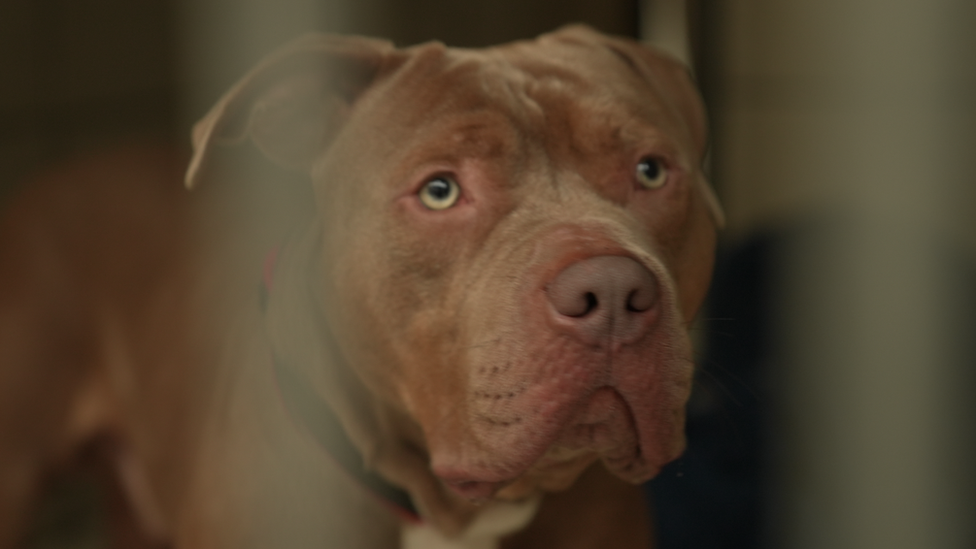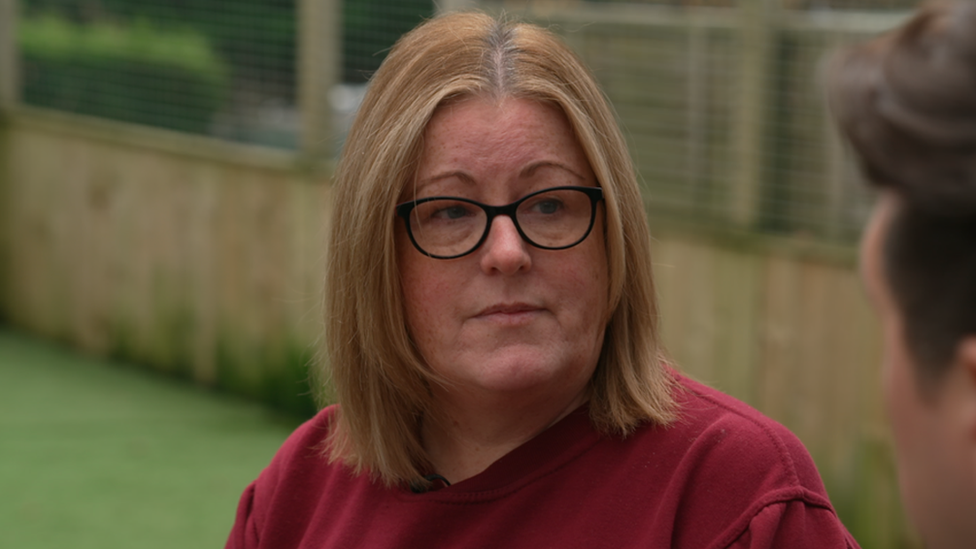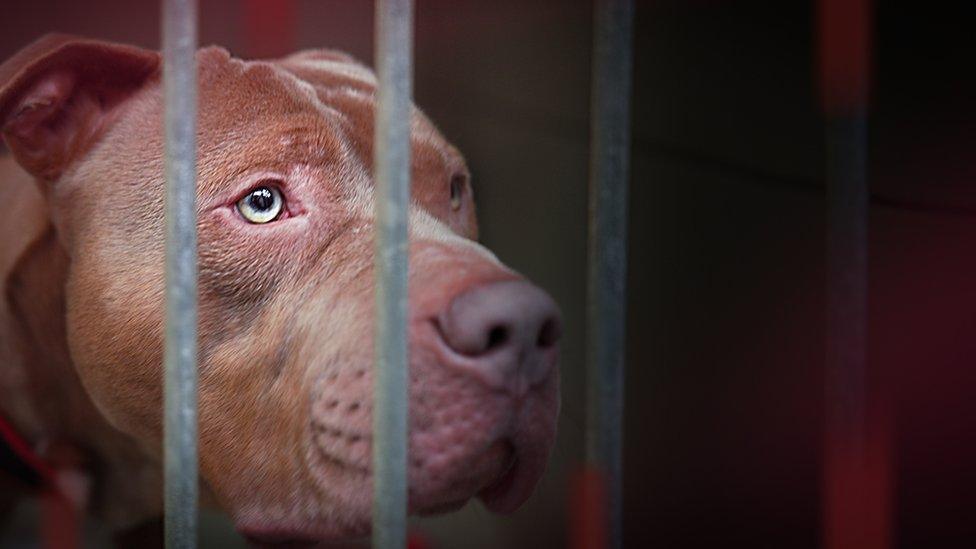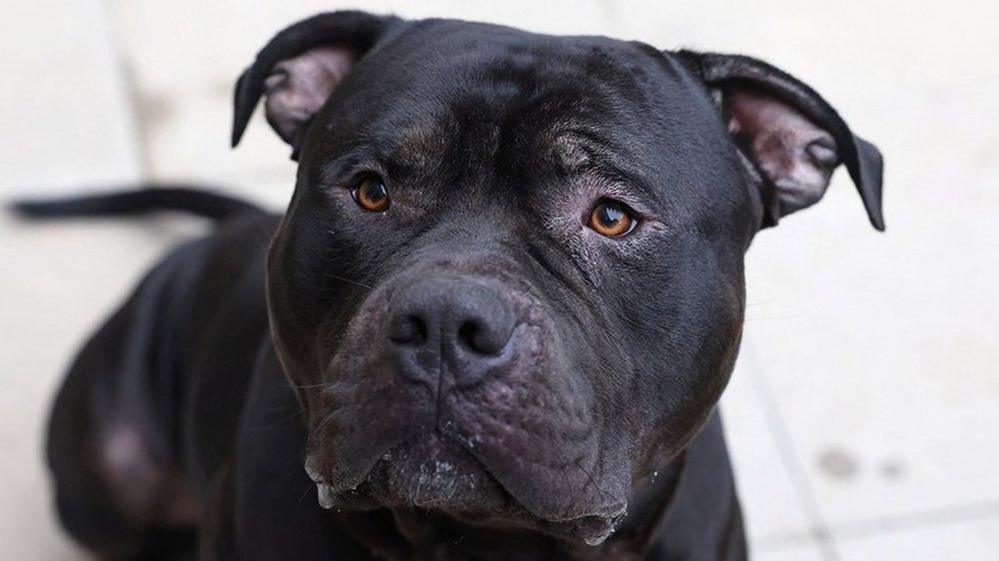XL bully ban: Dangerous dog reports could double - police
- Published

Reports of dangerous dogs could double after XL bully ban comes into force, police warn
Banning XL bully dogs could cause dangerous dog reports to double, a senior police officer has said.
Gwent Police's Assistant Chief Constable Mark Hobrough said he also appreciated "concern" over irresponsible breeders moving to other dogs.
New laws on XL bullies, external in England and Wales came into force on 31 December before an outright ban in February.
The UK government said the new legislation would protect the public.
The decision followed a number of high-profile attacks - some fatal - involving the breed.
According to the terms of the ban, dogs will need to be muzzled and kept on a lead in public.
It will also be illegal to re-home, sell, buy or transfer ownership of an XL bully to another person.
Owners who wish to keep their animals must apply to the exemption scheme before 1 February or can choose to have their dog euthanised and apply for compensation.
ACC Hobrough, who is also the dangerous dogs lead for the National Police Chiefs' Council, said he expected the number of reports of dangerous dogs to "double" after the ban takes full effect.
"We have got the ability to be able to cater for that demand, but that is something that we've got to stay very dynamic in relation to assessing," he said.
He said the police were already monitoring what the next so-called "status" dog might be.

ACC Mark Hobrough says police are monitoring what the next "status" dog might be
Research by BBC Wales Investigates suggests offences under the Dangerous Dogs Act, where a dog is found to be dangerously out of control, are rising.
Data from 27 out of 43 police force areas in England and Wales showed there were 15,350 offences in 2022 - up 37% rise since 2019, when there were 11,183.
The UK government previously said it was taking "swift and decisive action to protect the public".
It also said it was working closely with the police, canine and veterinary experts and animal welfare groups, to implement the legislation.
But the Dog Control Coalition - which includes the Dogs Trust, the British Veterinary Association and Hope Rescue - previously told the BBC breed-specific bans were ineffective.

Vanessa Waddon says dog breeders should be licensed and traceable
Vanessa Waddon from Hope Rescue, a charity based in Llanharan, Rhondda Cynon Taf, said making sure any dog breeder was licensed and "traceable" would have a bigger impact.
She said the exemption certificate would "not address poor ownership".
"All that's going to happen is that these those that do want to own a dangerous or intimidating dog, they will still be able to do that - they're just going to use a different breed," she said.
"We really do feel that [the ban] is not going to have the impact that the government think it's going to.
"Some sort of responsible dog ownership test that showed that you were a responsible owner, that you can keep your dog safely under control, I think those type of measures combined really would have an impact on the number of dog bites that we're seeing.
"But all of that does take money, I think this is where licensing could be useful, but only if we can ringfence the income into enforcement."
ACC Hobrough said it was "absolutely" a concern that breeders were moving on to other - potentially larger and more powerful - types of dog.
He added: "It's really important that members of the public who see dogs that they're concerned about within their own neighbourhoods report them, so that we can undertake assessments on whether the dogs are safe within the community."

They're large, powerful and some people think they are extremely dangerous. Will the new ban on XL bully dogs solve the problem? Watch Dogs on Death Row: Will the Bully Ban Work?

- Published4 December 2023

- Published24 March
